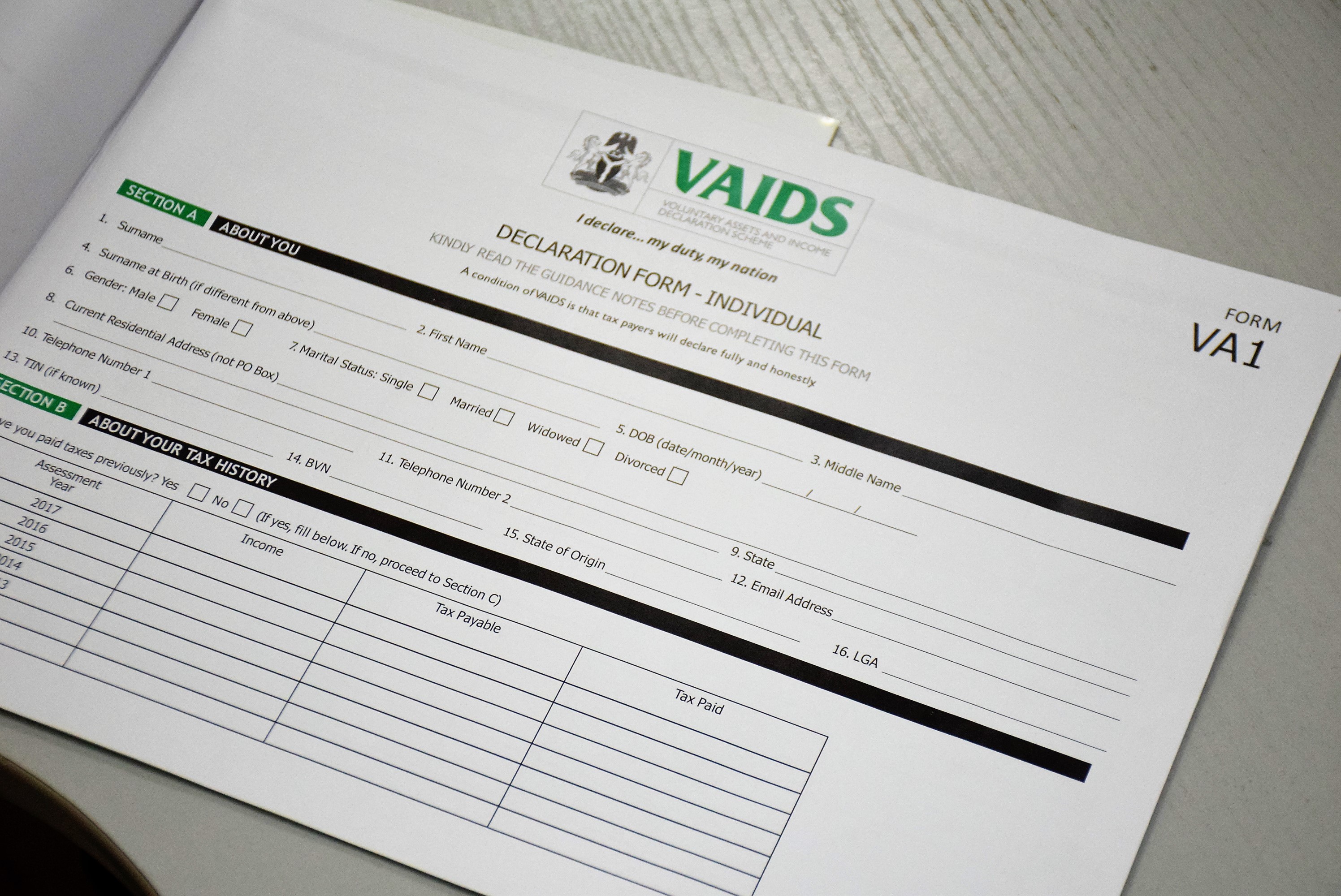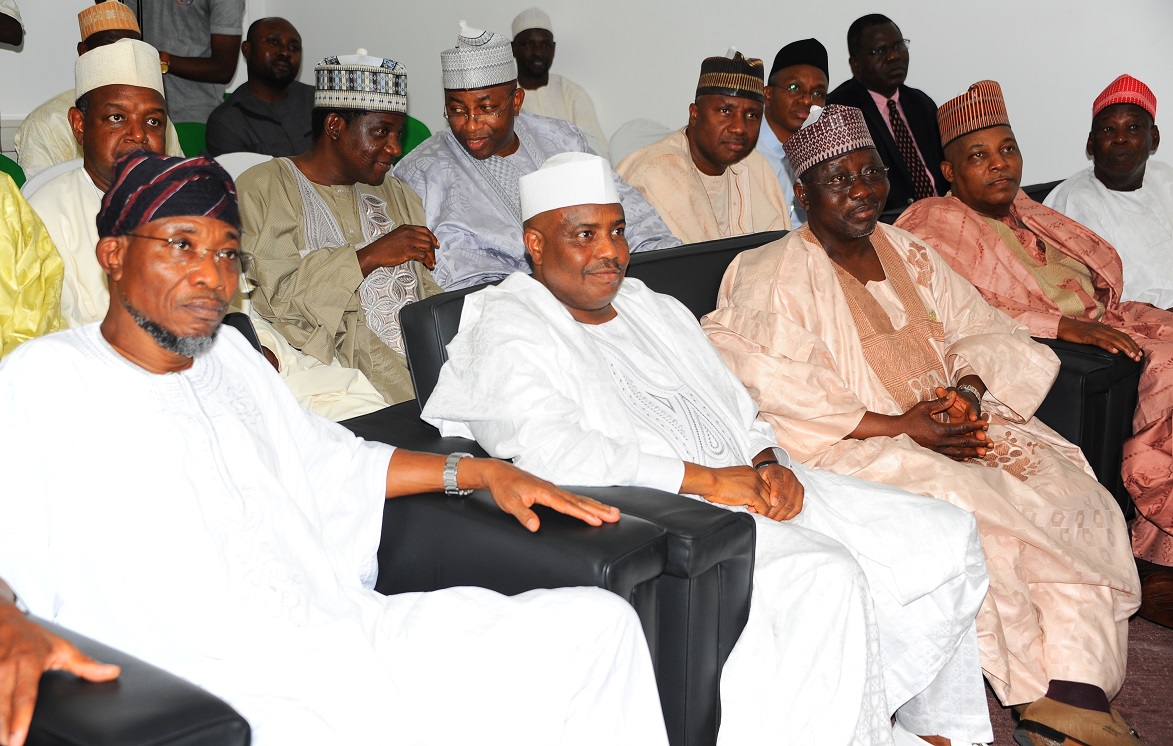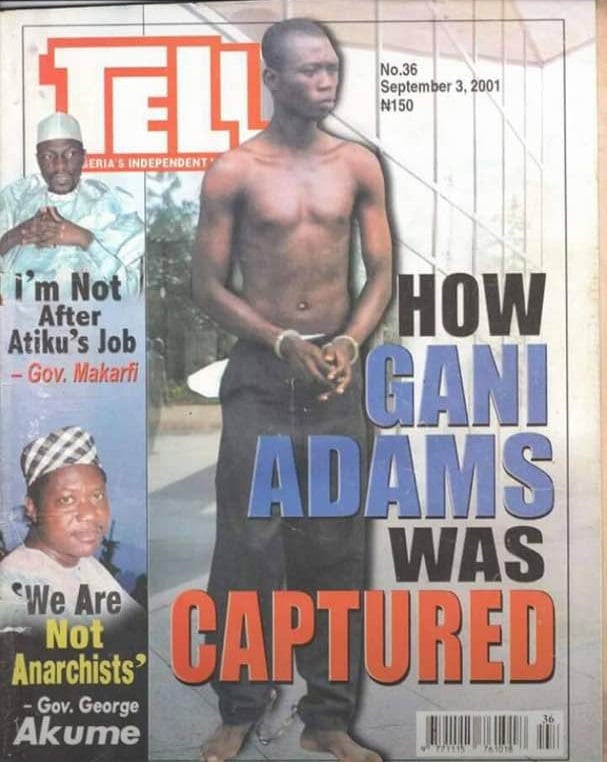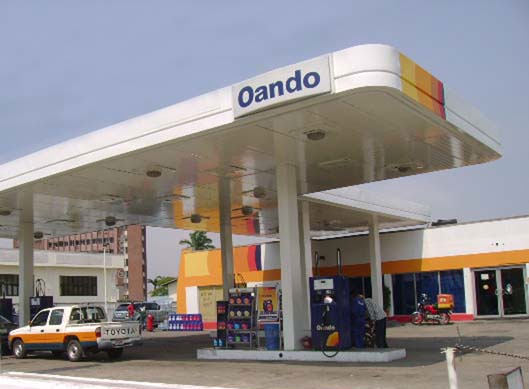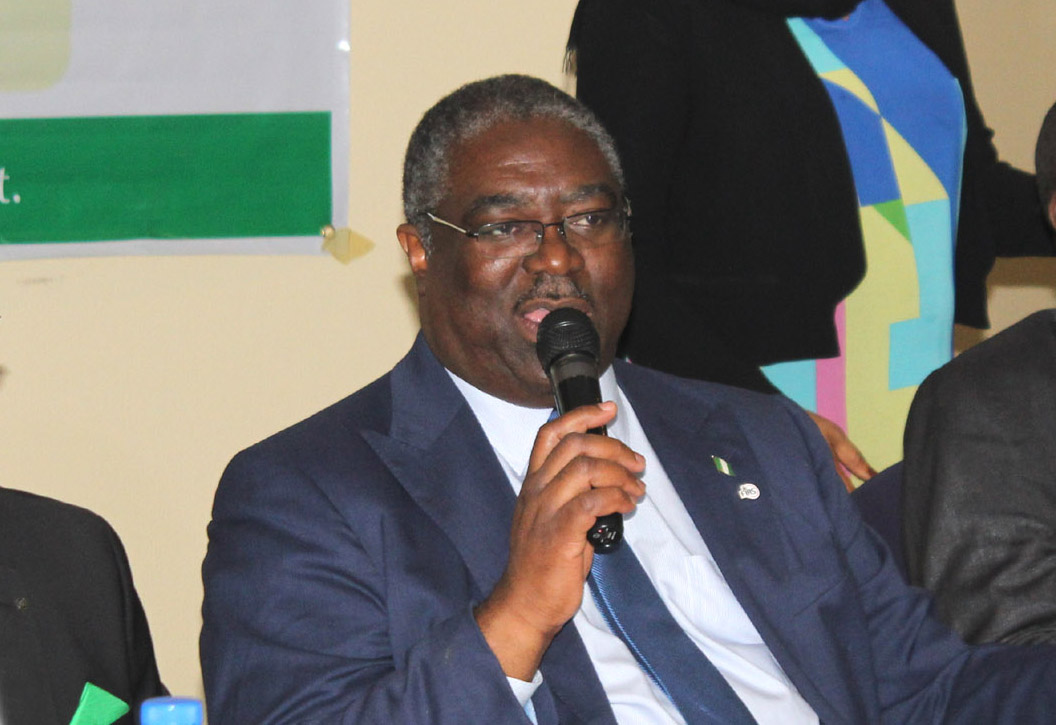In a drive to reduce Nigeria’s dependency on oil revenue, the federal government has introduced a number of policy initiatives to demonstrate its commitment to the age-old consensus that the country must diversify its income base. The launch of the Voluntary Assets and Income Declaration Scheme (VAIDS) by the federal ministry of finance is one of such initiatives.
VAIDS provides a window of opportunity, an amnesty of sorts, for taxpayers — both individual and corporate — to be honest with what they earn and own, and voluntarily pay up on their tax arrears between 2010 and 2015. Those who take advantage of the window will avoid paying interests and penalties and will not be prosecuted for tax evasion — assuming there is no court judgment already in place for specific cases.
However, those who refuse to come clean still have up till March 2018 to do so, after which they may bear the full weight of the law on tax evasion. That could mean criminal prosecution. According to Kemi Adeosun, the minister of finance, a number of high networth individuals are responding positively to the initiative by disclosing previously undeclared tax liabilities.
VAIDS, with a target of raising at least $1 billion from undeclared liabilities, applies to all tax-paying individuals, companies, executors and trusts, and covers all taxes collectible by federal and state tax authorities. The goal is to raise the percentage of non-oil tax revenue from the current 6 percent to 15 percent by 2020.
Advertisement
In order to build a database for enforcement, the government is already mining data on individuals and businesses who received payments of up to N100 million between 2010 and 2015. The data are being mined from bank accounts, Federal Inland Revenue Service (FIRS), state lands departments, Corporate Affairs Commission (CAC), Securities and Exchange Commission (SEC), National Identity Management Commission (NIMC), land registries, treasury bills and Nigerian Inter-Bank Settlement System (NIBSS), among others.
TheCable, in line with its mandate to promote knowledge in the pursuit of Nigeria’s progress, is of the opinion that the country needs to take taxation more seriously. This is not just for the revenue motive but because it also provides a trigger for civic engagement around which citizens can call the government to account. Nigeria’s dependence on oil revenue, which is generally treated as free money and therefore “nobody’s money”, has not done the cause of accountability and transparency any good.
The scholarly explanation is that because the bulk of government revenue comes from a natural resource and is largely independent of the tax payments by the citizens, the tendency is for the money to be “shared” and mismanaged. But because tax revenue bites hard, the citizens are more likely to be inclined to show interest in how the taxpayers money is spent. This is expected to help democracies perform better and promote accountability as well.
Advertisement
TheCable, therefore, implores high networth individuals and businesses that have not taken advantage of VAIDS to key in during the grace period and voluntarily comply, particularly as there is an option of spreading payment of outstanding liabilities over a maximum period of three years as may be agreed with the tax authorities.
TheCable would, nevertheless, advocate an increase the threshold from N100 million to N1 billion. We would also recommend that the coverage period is also shortened to 2015-2017 in order to make VAIDS more manageable. It is important to note that not every payment that passes through an account is an actual income to the account holder. The economy is also so stressed at this time that it is practically impossible to expect someone who defaulted in tax payment in 2010 to pay up in 2017. There are better chances of recovering current liabilities than going to as far back as 2010.
However, we assume that the government has done its homework and has factored all the likely issues and scenarios into the policy-making process. Certainly, VAIDS reflects government’s desire to widen the tax net while offering certain benefits to tax defaulters. Over 47 countries, including South Africa, India, Indonesia and Turkey, have implemented the variants of this programme with considerable success.
It is therefore the duty of every citizen, individual and corporate, to take advantage of the initiative to come into the tax net in exchange for leniency. It is also the responsibility of all the tax agencies to implement VAIDS with tact, diligence and a human face. It promises to be a win-win situation for all: the taxpayer, the government and the economy of Nigeria. The taxpayer is relieved of criminal prosecution and could be more energised to engage with the government in the campaign for accountability; the government will raise more revenue to execute its projects; and the economy gets a more robust and diverse revenue base rather than the eternal dependence on oil income.
Advertisement
Add a comment
